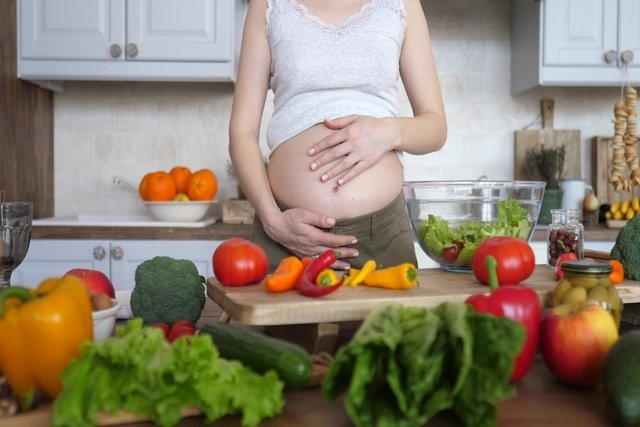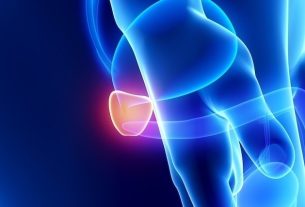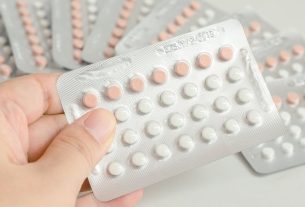To increase the chances of getting pregnant, firstly it is important to ensure that the future pregnant woman’s weight is adequate, as obesity or being underweight can harm the production of hormones that guarantee fertility and a healthy pregnancy.
Another important factor is to ensure the intake of the nutrients necessary for the egg maturation cycle, such as vitamin B6 and B12, found in beans and lentils, for example. Iron and folic acid supplementation is also recommended to increase blood flow to the sexual organs, ensure the quality of oxygen transport to the baby during pregnancy and assist in initial development, preventing malformations and miscarriage. See more about the main vitamins for getting pregnant.
Furthermore, in men, a healthy and balanced diet, rich in selenium present in tuna for example, is related to the formation of healthy sperm and the production of testosterone, which is the main male fertility hormone.

What to eat
Including some of these foods in your daily consumption can help couples complete the nutrients needed to maintain fertility, increasing their chances of getting pregnant, such as:
1. Citrus fruits
Citrus fruits such as orange, lemon, tangerine and pineapple are rich in vitamin C, calcium and potassium, which help to stabilize the menstrual cycle, making it easier to identify the fertile period, which is the best time to have sexual intercourse. Furthermore, orange has polyamine and folate that help deactivate free radicals that can damage sperm and eggs.
2. Aged cheese
Aged cheeses such as parmesan and provolone maintain good egg and sperm health as they are rich in polyamines, preventing free radicals from causing damage to reproductive cells.
3. Beans and lentils
These foods are rich in fiber, iron, zinc and folate, which help in the production and balance of sexual hormones. In addition to containing spermidine polyamine, which are regulators of the healthy development of sperm, facilitating the fertilization of the egg.
4. Salmon and tuna
Salmon and tuna are a great source of selenium, which is a nutrient involved in the proper formation of the sperm tail, which is mainly responsible for the good speed it takes to reach the egg. In addition to having omega-3, which is essential for the proper development of the baby’s brain in the first weeks of pregnancy.
5. Red fruits
Red fruits such as tomatoes, strawberries, cherries and blackberries contain lycopene, an antioxidant that reduces levels of free radicals that can damage sperm and eggs.
6. Leafy greens
Dark greens like kale, spinach, romaine lettuce and arugula are rich in iron and folate, which can improve the ovulation process and reduce the chances of genetic problems and miscarriage. They also contain iron, an important mineral for the transport of oxygen in the body and essential for the implantation of the fertilized egg in the uterus.
7. Sunflower seed
Roasted sunflower seeds are rich in vitamin E, which can help with sperm motility, in other words, help with speed. In addition to being rich in zinc, folate, selenium, omega 3 and 6, essential nutrients for female and male fertility, as they increase blood flow in the reproductive organs.
What to avoid to get pregnant faster
Some habits can interfere with the process of starting and carrying a pregnancy to term, and are therefore not recommended, such as:
- Consume fried foods, margarine and processed products: these foods may contain trans fats, which are associated with infertility by causing defects in sperm structure and egg quality;
- High consumption of refined carbohydrates: Foods such as pasta, bread and white rice when absorbed in the body, increase the level of insulin in the blood, which is chemically similar to ovarian hormones. Thus, the body can reduce the production of these hormones, as it understands that it already has them, and this results in immature eggs;
- Consume caffeine: caffeine reduces the absorption of calcium and iron in the body, which can harm fertility, in addition, as it is a stimulant with the ability to cross the placental barrier, during pregnancy, caffeine can alter heart rate and metabolism of the baby, increasing the chances of low birth weight and miscarriage;
- Alcoholic beverages: alcohol consumption reduces testosterone levels in men, reducing sperm production, and in women it can interrupt the menstrual cycle, which prevents the egg from being available for fertilization;
- Taking medications without medical advice: Self-medication can interfere with fertility by deregulating hormones necessary for the maturation of eggs and sperm.
If the couple has not managed to get pregnant within a year, it is recommended that they see a doctor who will check, through blood, urine and semen samples, whether there are any STIs or hormonal disorders that are making conception difficult.
After these tests, if necessary, the couple will be referred to a fertility specialist, who may order an ultrasound, for example, to observe the ovaries and testicles.
Bibliography
- JOURNAL OF PEDIATRICS. Influence of smoking on fertility, pregnancy and lactation. Available at: <https://www.scielo.br/pdf/jped/v77n4/v77n4a06.pdf>. Accessed on Aug 24, 2020
- HSE. How to improve your chances of getting pregnant. Disponível em: <https://www2.hse.ie/wellbeing/child-health/how-to-improve-your-chances-of-getting-pregnant.html>. Acesso em 24 ago 2020
- HSE. What to eat when trying to get pregnant. Disponível em: <https://www2.hse.ie/wellbeing/child-health/what-to-eat-when-trying-to-get-pregnant/foods-to-eat-when-planning-a-pregnancy.html>. Acesso em 24 ago 2020
- OMS. Restricting caffeine intake during pregnancy. Available at: <https://www.who.int/elena/titles/caffeine-pregnancy/en/>. Accessed on Aug 24, 2020
- NIH. Omega-3 Fatty Acid Supplementation During Pregnancy. Available at: <https://www.ncbi.nlm.nih.gov/pmc/articles/PMC2621042/>. Accessed on Aug 24, 2020

Sign up for our newsletter and stay up to date with exclusive news
that can transform your routine!
Warning: Undefined array key "title" in /home/storelat/public_html/wp-content/plugins/link-whisper-premium/templates/frontend/related-posts.php on line 12
Warning: Undefined array key "title_tag" in /home/storelat/public_html/wp-content/plugins/link-whisper-premium/templates/frontend/related-posts.php on line 13



